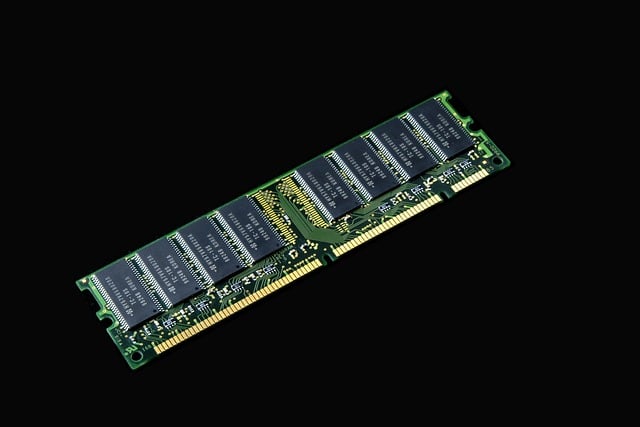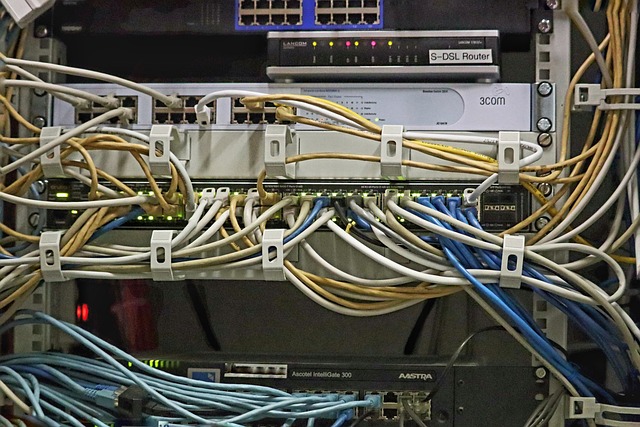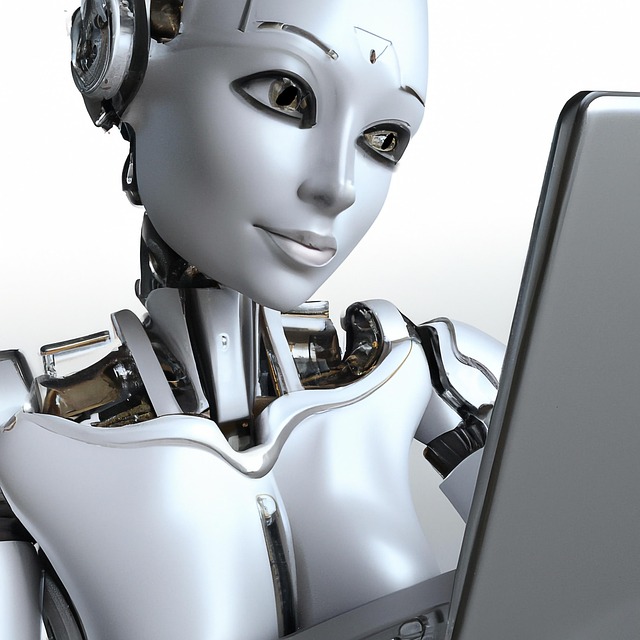# AI Technology: Driving Transformation and Innovation Across Industries and Everyday Life
Artificial Intelligence (AI) has emerged as a cornerstone of technological advancement, transforming not only industries but also everyday life. As we progress further into the 21st century, AI is no longer a futuristic concept; it is a reality that shapes how businesses operate and how individuals engage with the world. This article delves into the multifaceted impact of AI technology, exploring its influence across various sectors and its integration into daily routines.
## Revolutionizing Industries
AI’s transformative power is particularly evident in its ability to revolutionize traditional industries. Manufacturing, for instance, has undergone a significant metamorphosis with the integration of AI-driven automation. Robots equipped with machine learning algorithms now perform complex tasks, enhancing efficiency and precision. This shift not only streamlines production processes but also reduces operational costs, allowing companies to allocate resources more effectively.
In the realm of healthcare, AI technologies are making headway in diagnostics and patient care. Advanced algorithms analyze vast datasets, identifying patterns that might elude human practitioners. For example, AI systems can detect early signs of diseases such as cancer by examining medical images with remarkable accuracy. Furthermore, predictive analytics powered by AI enables healthcare providers to anticipate patient needs, leading to more personalized treatment plans and improved outcomes.
The financial sector is also witnessing a seismic shift due to AI advancements. Algorithms capable of analyzing market trends and consumer behavior are reshaping investment strategies and risk assessment. Robo-advisors, for instance, are democratizing wealth management by providing personalized financial advice at a fraction of the cost of traditional services. Additionally, AI-driven fraud detection systems are enhancing security measures, safeguarding both institutions and customers from potential threats.
## Enhancing Everyday Life
Beyond industrial applications, AI technology is seamlessly integrating into everyday life, enhancing convenience and efficiency. Smart home devices, powered by AI, have become increasingly popular, allowing individuals to control various aspects of their living environments with voice commands or mobile applications. From adjusting thermostats to managing lighting, these devices exemplify how AI simplifies mundane tasks, providing users with greater comfort and control.
Transportation is another domain where AI is making significant strides. The advent of autonomous vehicles promises to redefine how we commute. By leveraging AI algorithms, self-driving cars can navigate complex environments, making real-time decisions based on their surroundings. This innovation not only has the potential to reduce traffic accidents but also aims to alleviate congestion in urban areas. Moreover, ride-sharing platforms utilize AI to optimize routes and match drivers with passengers efficiently, revolutionizing urban mobility.
Education is also experiencing a transformation through AI technology. Adaptive learning platforms employ AI to tailor educational experiences to individual student needs, promoting personalized learning pathways. By analyzing performance data, these systems can identify strengths and weaknesses, allowing educators to intervene effectively. The result is a more engaging and effective learning environment that caters to diverse learning styles.
## Ethical Considerations and Future Implications
While the benefits of AI technology are undeniable, ethical considerations loom large as we navigate this new landscape. The deployment of AI raises questions about data privacy, algorithmic bias, and job displacement. As AI systems rely on vast amounts of data, ensuring the security and ethical use of this information is paramount. Moreover, algorithms trained on biased data can perpetuate existing inequalities, necessitating a commitment to transparency and fairness in AI development.
Job displacement is another pressing concern associated with AI integration. As automation takes over routine tasks, there is a growing fear that many jobs may become obsolete. However, it is essential to recognize that AI also creates new opportunities. The demand for skilled professionals in AI development, data analysis, and cybersecurity is on the rise. Upskilling and reskilling initiatives will be crucial in preparing the workforce for an AI-driven economy, enabling individuals to thrive in a landscape where AI complements human capabilities rather than replaces them.
Looking ahead, the future of AI technology is rife with possibilities. Innovations in natural language processing and machine learning are expected to enhance human-computer interactions, making them more intuitive and seamless. As AI continues to evolve, its applications will expand, permeating various aspects of life and work. The potential for AI to drive sustainability initiatives, improve accessibility, and foster creativity is immense, paving the way for a more interconnected and efficient world.
## Conclusion
AI technology is undeniably a catalyst for transformation and innovation across industries and everyday life. Its impact is felt in manufacturing, healthcare, finance, and beyond, reshaping how businesses operate and enhancing the quality of life for individuals. However, as we embrace the benefits of AI, it is crucial to address the ethical implications and prepare for the future of work. By fostering a responsible and inclusive approach to AI development, we can harness its potential to drive positive change in society. As we stand on the cusp of this technological revolution, the journey of AI has only just begun, promising a future that is both exciting and challenging.











